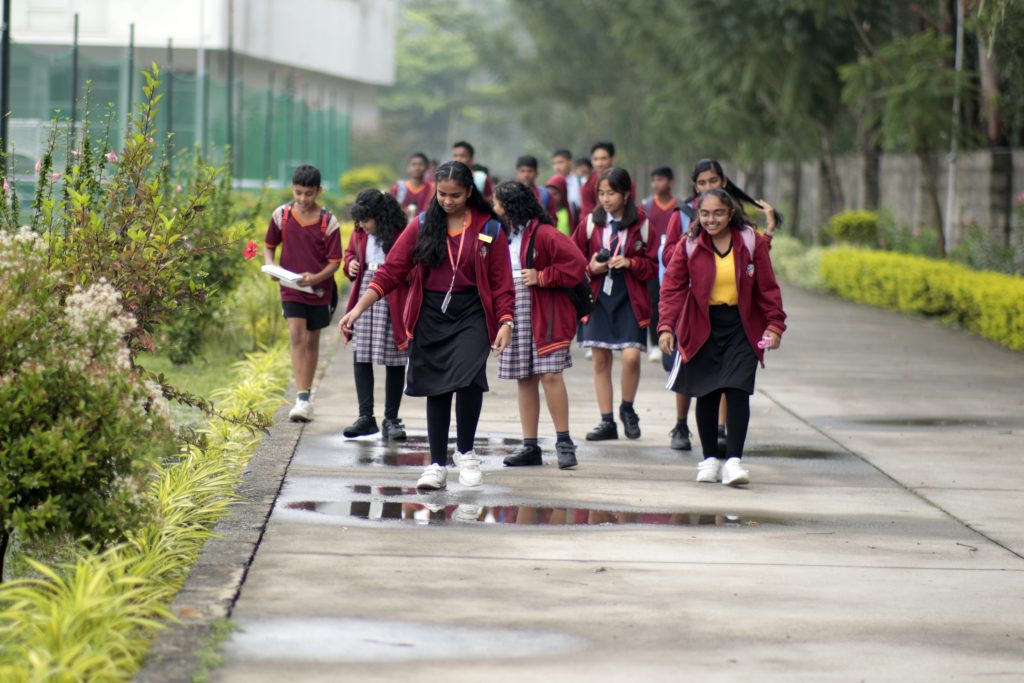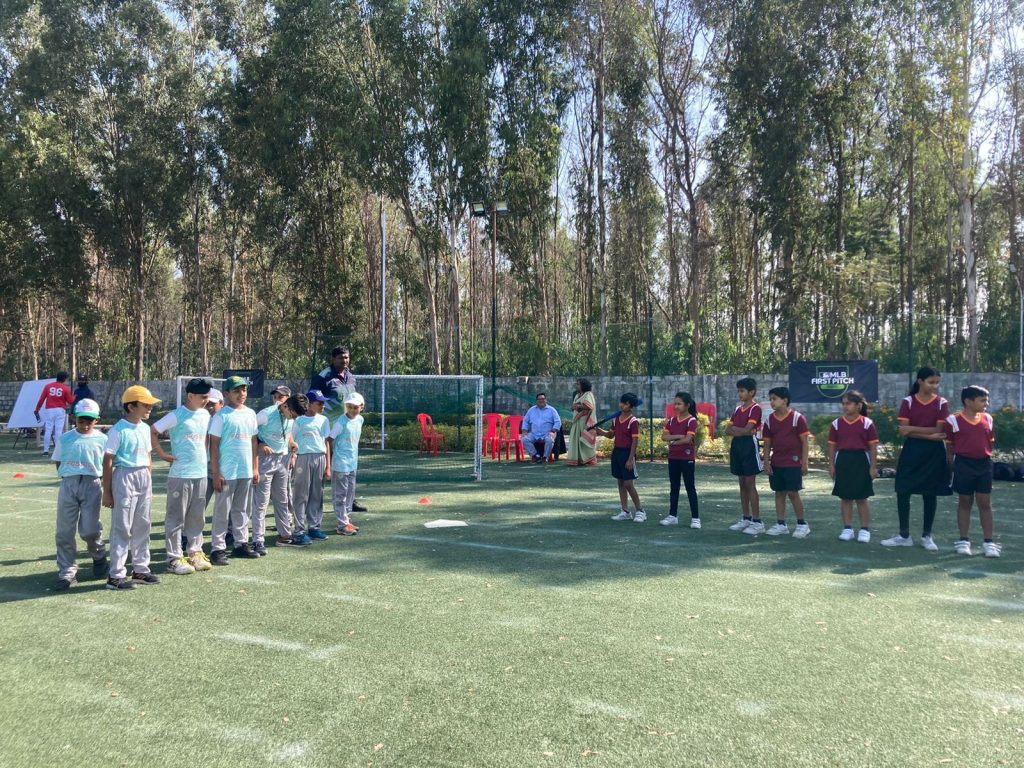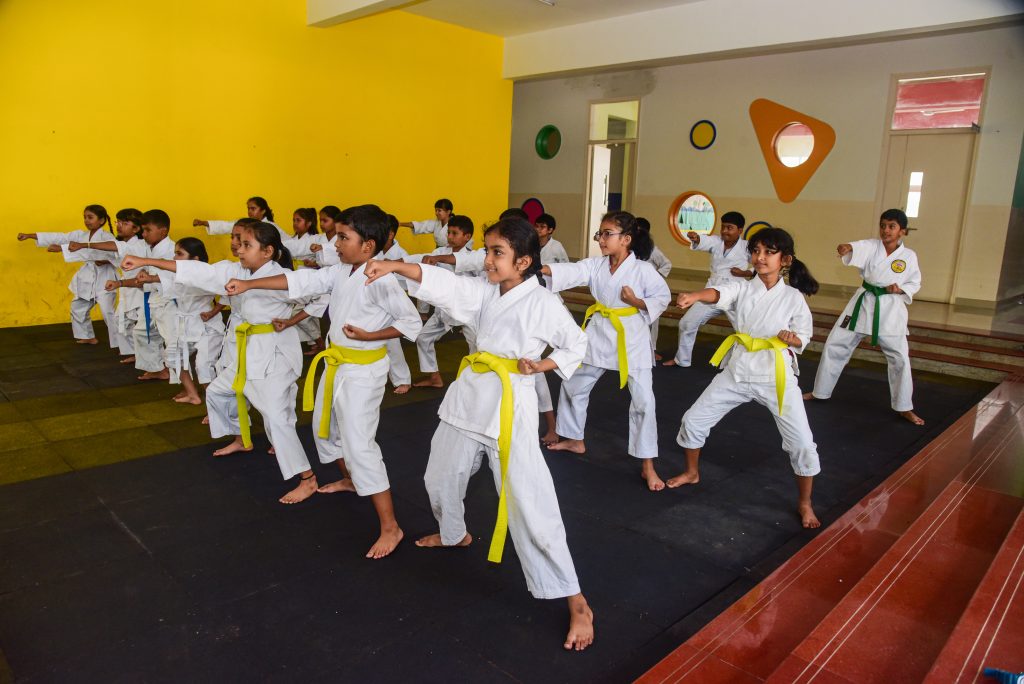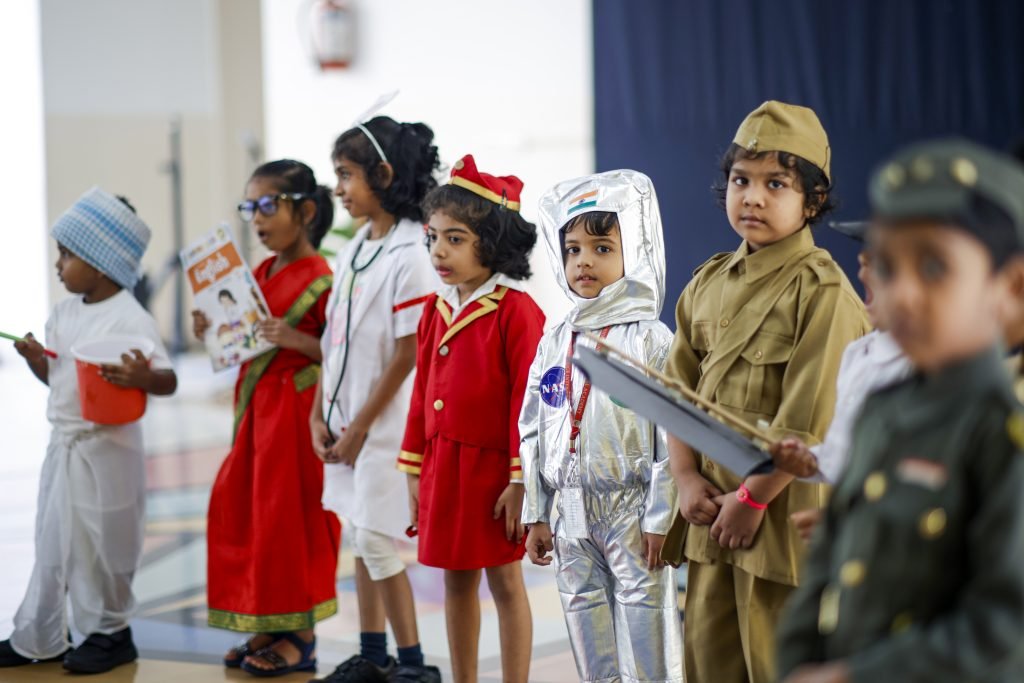
The International Baccalaureate (IB) program is renowned for its rigorous academic curriculum, emphasis on critical thinking, and commitment to fostering global-mindedness. Beyond academic achievement, IB schools in Bangalore play a significant role in shaping students’ personal growth and development, equipping them with essential skills, values, and perspectives that extend far beyond the classroom.
Are you choosing an International Education for your child? Considering an international education for your child? Explore the exceptional benefits of International Baccalaureate (IB) Schools, renowned for their commitment to holistic development. In this blog, we’ll explore how IB schools profoundly impact personal growth and development.
Why Choose IB Education?
- Holistic Development- IB Schools emphasise on nurturing academic, personal, and social skills. Students emerge as well-rounded individuals with a heightened awareness of the world.
- Global Perspective- The IB curriculum fosters a global mindset, equipping students to excel in an interconnected world. Exposure to diverse perspectives and cultures fosters open-mindedness.
- Emphasis on Enquiry-Based Learning: The IB curriculum promotes inquiry-based learning, igniting curiosity and a passion for knowledge. Students actively engage in their educational journey, becoming lifelong learners.
Cultivating Critical Thinking Skills
One of the cornerstones of the IB program is its emphasis on critical thinking and inquiry-based learning. Through challenging coursework, interdisciplinary projects, and open-ended assessments, IB students develop the ability to analyze complex issues, evaluate multiple perspectives, and think critically about the world around them. These skills not only prepare students for academic success but also empower them to navigate real-world challenges with confidence and adaptability.
Encouraging Personal Reflection and Growth
The IB program places a strong emphasis on personal development and self-reflection. Through activities such as the Extended Essay, and the Creativity, Activity, and Service component, students are encouraged to explore their interests, passions, and values, and to reflect on their personal growth and development. These experiences not only deepen students’ understanding of themselves but also foster a sense of responsibility, empathy, and self-awareness that prepares them to make meaningful contributions to society.
Promoting Ethical Leadership and Service
IB schools instil a strong sense of social responsibility and ethical leadership in their students. Through the CAS component, students are encouraged to engage in service-learning projects that address local and global issues, such as environmental sustainability, social justice, and community development. By actively participating in service activities, students develop empathy, compassion, and a commitment to making a positive difference in the world. These experiences lay the foundation for a lifelong dedication to service and ethical leadership, empowering IB graduates to become agents of positive change in their communities and beyond.
Nurturing Resilience and Perseverance
The rigorous nature of the IB program challenges students to stretch their intellectual abilities, manage their time effectively, and overcome obstacles with resilience and perseverance. From navigating demanding coursework to juggling extracurricular activities and service commitments, IB students learn to prioritize tasks, manage stress, and persevere in the face of adversity. These experiences not only build resilience but also instil a sense of determination, grit, and self-discipline that serves students well in their academic pursuits and beyond.
Fostering a Global Perspective
IB schools are committed to fostering global-mindedness and promoting intercultural understanding. By emphasizing the study of diverse cultures, languages, and perspectives, IB students develop a deep appreciation for cultural diversity and an understanding of their place in the global community. Through interactions with classmates from different backgrounds and opportunities for international exchange programs, IB students gain firsthand experience in navigating cultural differences and collaborating with individuals from diverse backgrounds—a skill that is necessary in this interconnected world.
Fostering Collaborative Skills and Teamwork
Collaboration and teamwork are essential skills in the modern workplace, and IB schools provide ample opportunities for students to develop these skills. Through group projects, collaborative research, and team-based activities, IB students learn to communicate effectively, resolve conflicts, and work collaboratively toward shared goals. These experiences not only enhance students’ academic performance but also prepare them to thrive in diverse team environments and contribute positively to group dynamics—a skill set that is highly valued in today’s global economy.
Summary
The impact of IB schools on personal growth and development extends far beyond academic achievement. By cultivating critical thinking skills, fostering a global perspective, encouraging personal reflection and growth, promoting ethical leadership and service, nurturing resilience and perseverance, and fostering collaborative skills and teamwork, IB schools empower students to become engaged, compassionate, and ethical global citizens.
Through a holistic approach to education that prioritizes both academic excellence and personal development, the best international school in Bangalore plays a transformative role in shaping the next generation of leaders, innovators, and changemakers. By embracing the core principles of the IB program and the opportunities for personal growth and development it offers, students can embark on a journey of self-discovery, empowerment, and fulfillment that will shape their lives and their futures for years to come.









